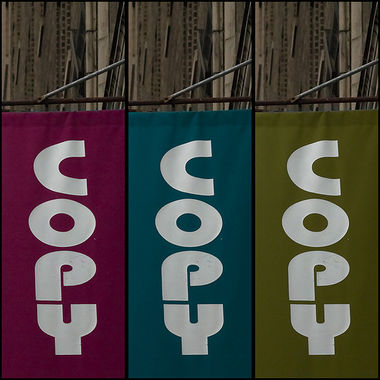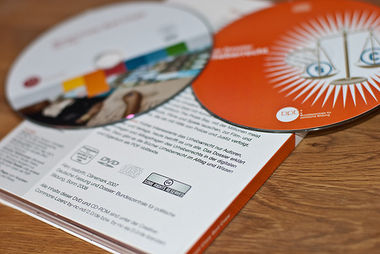Rights and protections
| Course dashboard for #OCL4Ed | ||
|---|---|---|
| Copyright: Your educational right to copy | Introduction | Video signpost | History | Working globally | Scope | Ownership | Rights & protections | Exceptions | Transfer of rights | Case study | Case study reflection | E-Activity - Copyright MCQ | |
Copyright provides protections for a number of exclusive rights for the copyright holder:
- Economic rights relating to the rights to restrict reproduction, distribution and adaptations of the work
- Moral rights relating to interests which are not financial or monetary
- Related rights to protect persons other than the authors who are involved in the dissemination of copyrighted works
- Transfer of rights relating to assignment of rights, licensing and transfer of rights
These exclusive copyright protections are limited for a period of time and restricted by a number of exceptions.
Contents
Economic rights
Economic rights are generally exclusive rights which enable authors to earn a living from their creative works through the protections afforded by copyright law. This involves the right of owners to authorise activities which fall within the scope of protection or alternatively the right not to grant permission for activities relating to their copyrighted works. These exclusive rights may be restricted by national legislation, for example the public lending right or resale right where in these cases, the copyright holders' rights may be restricted to the right of remuneration and no longer an exclusive right.Reproduction rights
Copyright restricts the reproduction of creative works without the prior authorisation (or refusal) by the author and is the legal basis for protecting exclusive economic rights of copyrighted works. With advances in digital technology, there is wide consensus among international agreements that storing a work in digital form constitutes a copy (reproduction) in copyright terms. Temporary reproduction, for example the caching of copyrighted material when viewing a web page is generally excluded, but in most instances storing permanent copies of cached web-pages would be a breach of copyright. Consult your national legislation for details relating to digital reproduction.
Reproduction rights also relate to the authorisations required for adaptations or derivative works. Some countries include specific provisions relating to the adaptation right and may deal with the translation of original works as a special case.
Rights of distribution
While some jurisdictions deal with the rights of distribution under the right of reproduction above, in many countries, the rights of distribution can be separated and transferred. The original copyright holder has the right to authorise (or refuse) the making of copies which generally covers all known methods as well as those methods which are yet to be discovered. As indicated above, temporary or transient copies like caching may be excluded from the rights of distribution.Related to the rights of distribution is the limitation which permits free circulation of goods usually called the principle of exhaustion (or the first sale doctrine in the United States). When you purchase a book, you do not own the copyright. Once a copy has been distributed for the first time through the sale of the book, the purchaser may dispose of this copy (e.g. sell it or give it away) without prior consent of the copyright holder. In other words, the original right of the copyright holder to distribute a physical copy of a work is exhausted after the first sale of the physical book. Your national copyright act will typically indicate whether the principle of exhaustion or first sale doctrine is restricted to your own country or economic region. In some cases the principle of exhaustion may apply worldwide.
Some countries deal with the rights of rental and lending as a distinct component of distribution rights. Rental and lending of an original copy may impact on the sales volumes for the copyright holder and rental rights of cinematographic works, sound recordings, computer games and programs may be dealt with as a separate and exclusive right in your national copyright legislation.
Moral rights
Moral rights extend beyond financial or monetary interests and are recognised in most countries in different ways, for example through the national copyright act or alternative legislation like contract law. Moral rights, for example, refer to the right to claim authorship or restrict derogatory uses of the authors' creative works.
Moral rights are not a property right and belong to the author. Consequently, they cannot be transferred even when the copyright (property right) has been assigned or transferred to another party. So for example, an author may transfer or assign copyright to a publisher for the distribution of his/her creative work. Moral rights would restrict the publisher from removing the author's name or substituting it with another name. However, common law countries allow moral rights to be waived under certain conditions. There are also differences of opinion around the world regarding how long moral rights should be protected. Some suggest that they should not be protected after the death of the author, others recommend that they last as long as the duration of the copyright and fewer argue that they should be protected indefinitely.
Related rights
Related rights (or neighbouring rights) encompass the rights which are granted to persons or organisations other than the original copyright holder. Related rights refer to the rights given to performers, producers of music and broadcasting organisations. Most countries have incorporated related rights into their national legislation and you are advised to consult your national copyright legislation for more detail. For example, an actor or musician may perform the work of another author, for example a Beethoven concerto or play by Andrew Lloyd Webber. Related rights govern the provisions for the performer to copyright their performances. In the case of broadcasters, provisions for protecting the rights of re-broadcast or reproduction are provided, typically protecting these works for a minimum of 20 years. However, you must consult your own legislation, particularly with reference to the protections associated with digital formats like webcasts.
Duration of copyright
Copyright protections do not continue indefinitely. When copyright expires, these creative works enter the public domain. The intention of copyright is to secure exclusive rights for the lifetime of the author plus a certain time for the benefit of the heirs and successors following the death of the copyright holder.
Reflection

